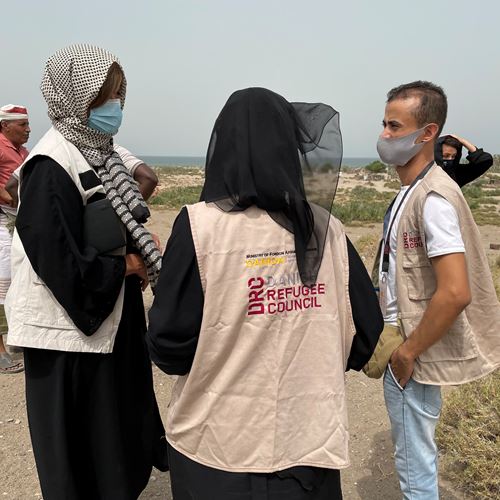News
Yemen - Piloting Biogas as a Source of Clean Energy and Fertilizer in Partnership with Yemini Social Enterprise
DRC in partnership with local company Bio Treasure is exploring and testing a holistic biogas production solution to address both the energy needs of farming communities and enable access to organic fertilizer for increased and more sustainable fodder and crop production.

The challenge
Rural communities in Yemen are struggling to access affordable energy for cooking due to high costs and a lack of resources. This results in deforestation, desertification and increased flood risk because people are forced to use wood for energy which negatively impacts the environment. In addition, high cost of fertilizer that compromise production of fodder and food making it hard to produce fodder & food. To solve this,DRC Yemen intends to pilot biogas production to address both the energy needs of farming communities and the access to fertilizer for increased fodder production. Biogas is an environmentally friendly, renewable energy source which is produced from organic matter in absence of oxygen. The initiative seeks to pilot the use of bio-gas production technology with households in Yemen in partnership with a Yemeni private sector partner, Bio-Treasure. The initiative seeks to offer smallholder farming communities access to clean energy and organic fertilizer. This would reduce the rates of deforestation and desertification by offering an alternative source of fuel. Additionally, the organic fertilizer produced as a by-product of biogas production, would offer farmers a sustainable source of fertilizer for fodder and crop production.
The benefits of preserving trees
The preservation of trees plays a crucial role in combating desertification, as it significantly reduces the practice of cutting them down. This project not only helps to protect the environment but also contributes to the overall reduction of desertification. By preventing deforestation, we can witness a range of positive impacts, including an increase in productivity and yields, leading to improved food security.
Furthermore, preserving trees also results in an increase in vegetation cover, which in turn helps to reduce surface run-off. This reduction in run-off can have a significant impact on water conservation and soil erosion. By maintaining a healthy vegetation cover, we can ensure the sustainability of our ecosystems and promote a greener and more balanced environment.
The initiative seeks to offer smallholder farming communities access to clean energy and organic fertilizer. This would reduce the rates of deforestation and desertification by offering an alternative source of fuel. Additionally, the organic fertilizer produced as a by-product of biogas production, would offer farmers a sustainable source of fertilizer for fodder and crop production

